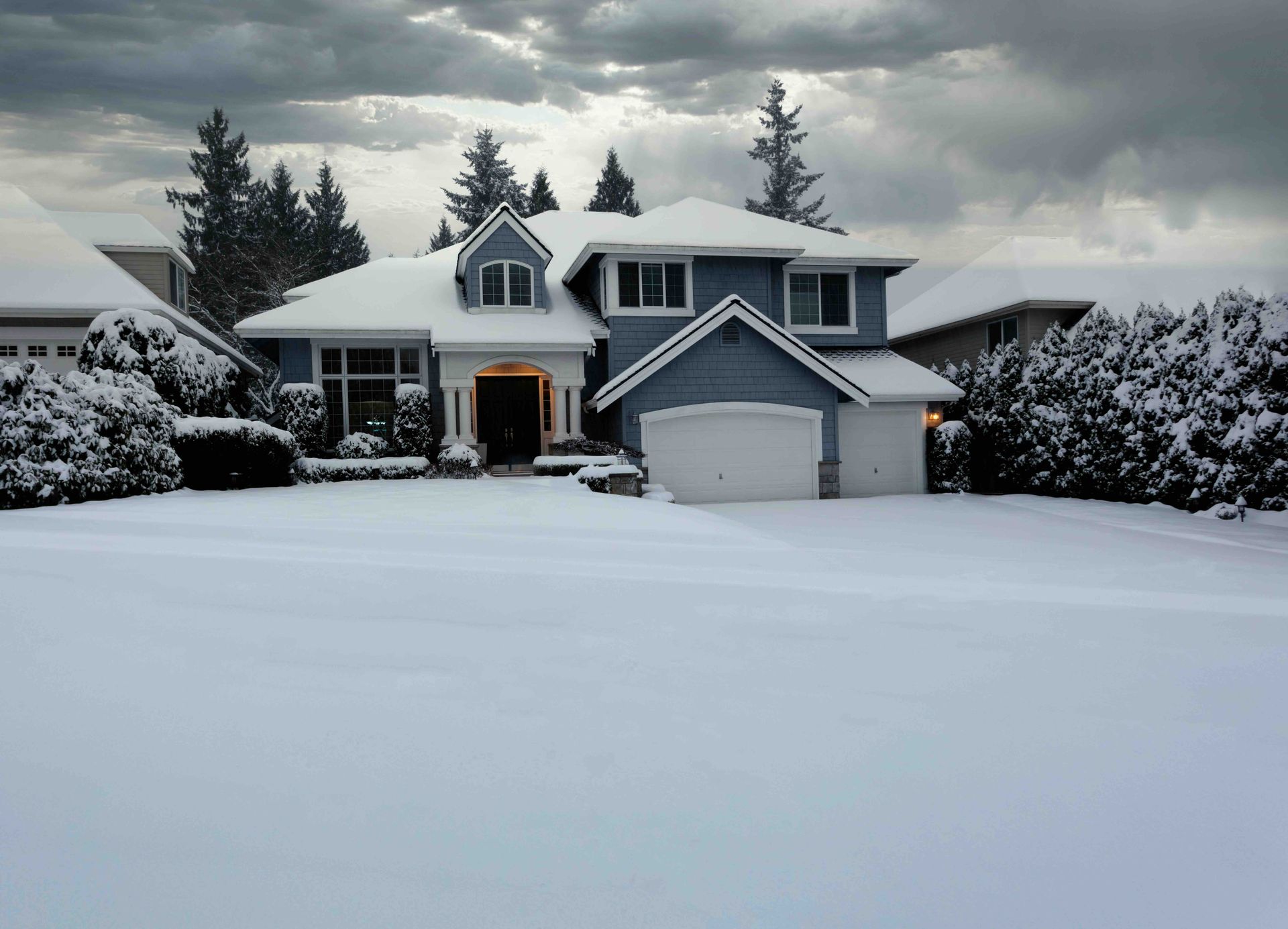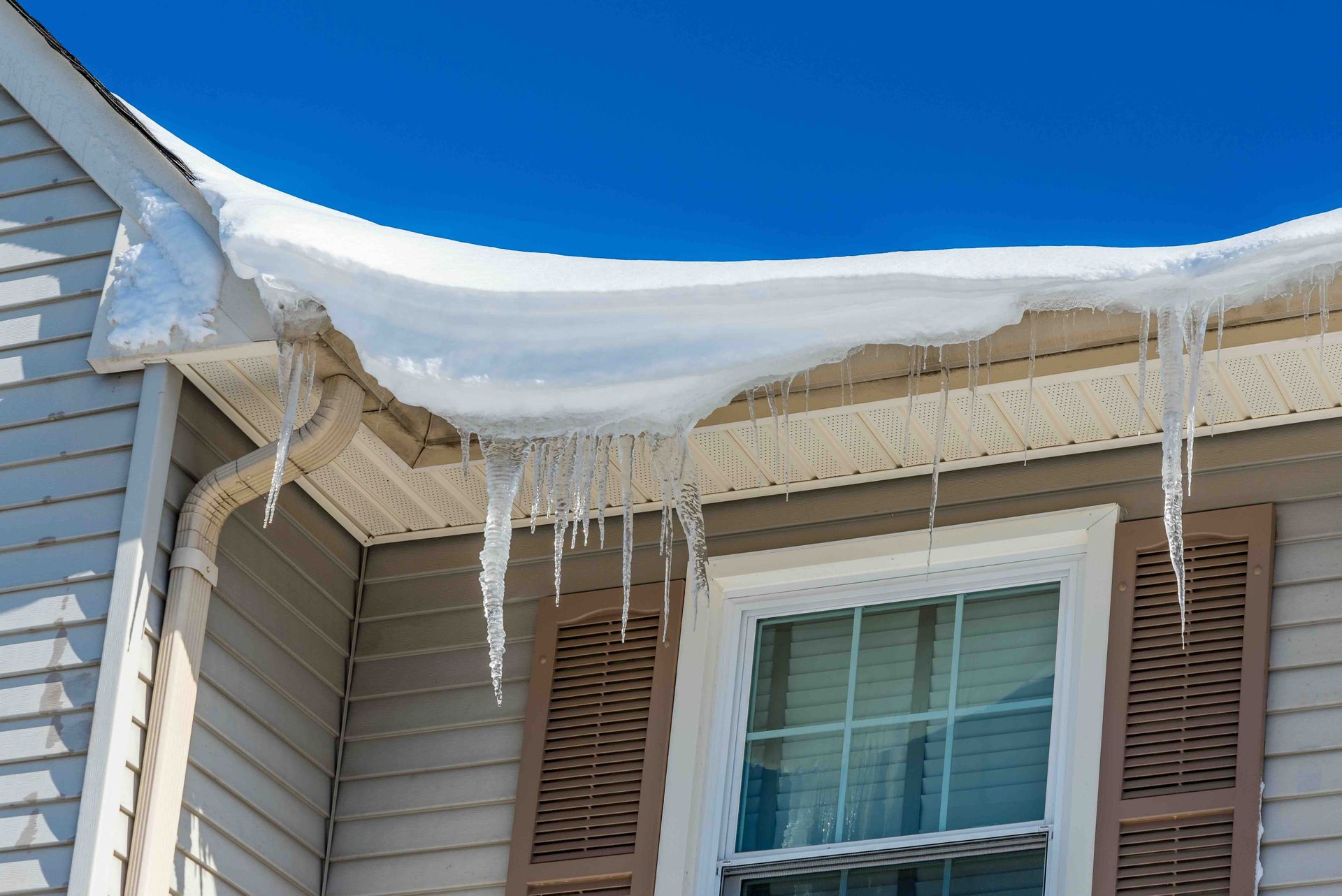10 Tips for First-Time Homebuyers in the Grand Rapids Housing Market
Buying your first home in the Grand Rapids housing market is a significant milestone, but it can also feel overwhelming. There’s one effective solution – get organized early in the process and prepare for all aspects of buying a new home in Grand Rapids.
Real estate doesn’t have to be complicated. With Cornerstone Home Group, you get expert guidance and a dedication to "Serving All Your Real Estate Needs" every step of the way. Whether you’re looking to buy, sell, or invest, we’re here to help. Contact us today at
616.341.7231 or via
our website contact form to start the conversation!
1. Start Saving Early
Saving for a home involves more than just the purchase price. You'll need to account for several upfront costs and ongoing expenses.
Understanding Upfront Costs
Here's a closer look at the key initial expenses:
- Down Payment
The down payment is the initial sum you pay towards the home's purchase price. The exact amount varies based on the type of mortgage and the lender's requirements. While some loans, especially those for first-time buyers with strong credit, may allow for down payments as low as 3%, it's crucial to understand the implications.
A smaller down payment often means higher monthly payments and potentially the need for private mortgage insurance (PMI). For instance, on a $300,000 home, a 3% down payment is $9,000. It's wise to use a down payment calculator to set a realistic savings goal and establish a system of automatic transfers from your checking account to your savings. This ensures consistent progress towards your goal. - Closing Costs
These are the fees and expenses associated with finalizing your mortgage. They typically range from 2% to 6% of the loan amount. On a $300,000 loan, closing costs could fall between $6,000 and $18,000.
These costs cover a variety of services, including appraisal fees, title searches, lender fees, and taxes.
It's important to get a detailed estimate of closing costs from your lender. In a buyer's market, you might have some leverage to negotiate with the seller to cover a portion of these costs. Additionally, you can shop around for services like home inspections to potentially lower these expenses. - Move-in Expenses
Moving into a new home involves costs beyond the actual move. Local moves can typically cost up to $2,500, but long-distance moves can be considerably more expensive, depending on the distance, the volume of your belongings, and the services you require (e.g., packing, loading, unloading). It's also prudent to set aside funds for immediate home repairs, essential upgrades, and new furnishings. These initial costs can add up quickly, so budgeting for them is crucial.
2. Decide How Much Home You Can Afford
Determining your budget before you start house hunting is essential. This will help you focus your search on properties you can realistically afford and prevent financial strain in the future.
Factors Affecting Affordability
Several factors influence how much you can comfortably spend on a home:
- Income
Your stable monthly income is a primary factor. Lenders use this to calculate your debt-to-income ratio (DTI). - Debt
All your existing debts, including student loans, car loans, and credit card balances, affect your DTI. A lower DTI is generally better. - Down Payment
The amount of your down payment influences the size of the loan you'll need, which in turn affects your monthly payments. - Credit Score
A higher credit score can qualify you for lower interest rates, making homeownership more affordable. - Location
The cost of living and property prices vary significantly depending on where you plan to live. - Property Taxes
These are ongoing expenses that can vary greatly depending on the location and the value of the property. - Homeowners Insurance
Lenders require you to have homeowners insurance, which protects your property and its contents. - HOA Fees
If you buy a condo, townhome, or a home in a planned community, you'll likely have to pay monthly HOA fees. - Using Affordability Calculators
Online tools, such as NerdWallet's home affordability calculator, can help you estimate a suitable price range. These calculators typically consider your income, existing debts, down payment amount, credit score, and the location where you intend to live. They provide a valuable starting point for understanding your financial limits.
3. Check and Polish Your Credit
Your credit score is a critical factor in the home-buying process. It directly impacts your ability to qualify for a mortgage and the interest rate a lender will offer you. A higher credit score generally translates to a lower interest rate, which can save you a significant amount of money over the life of the loan.
Improving Your Credit Score
Here are actionable steps to improve your credit score:
- Obtain Your Credit Reports
Request free copies of your credit reports from each of the three major credit bureaus: Experian, Equifax, and TransUnion. Carefully review these reports for any errors, inaccuracies, or outdated information. - Dispute Errors
If you find any errors on your credit reports, dispute them with the respective credit bureau. Provide supporting documentation to substantiate your claims. Correcting errors can significantly improve your credit score. - Lower Credit Card Balances
Aim to keep your credit card balances as low as possible. High credit utilization (the amount of credit you're using compared to your total available credit) can negatively affect your score. Experts recommend keeping utilization below 30%.
4. Explore Mortgage Options
Understanding the different types of mortgages available is essential for making an informed decision. Each mortgage type has its own set of requirements, terms, and conditions.
Types of Mortgages
Here's an overview of common mortgage options:
- Conventional Mortgages
These are the most common type of home loan and are not insured or guaranteed by a government agency. They typically require a minimum credit score of 620. Some conventional loans, particularly those designed for first-time buyers, may allow for down payments as low as 3%. However, lenders often require private mortgage insurance (PMI) if your down payment is less than 20% of the home's purchase price. - FHA Loans
Insured by the Federal Housing Administration (FHA), these loans are popular among first-time buyers due to their more lenient credit score requirements and lower down payment options. FHA loans typically allow for down payments as low as 3.5%. However, they require you to pay mortgage insurance premiums (MIP), which include an upfront premium and an annual premium. - USDA Loans
Guaranteed by the U.S. Department of Agriculture (USDA), these loans are designed for homebuyers in eligible rural and suburban areas. USDA loans often do not require any down payment, making them an attractive option for those with limited savings. However, there are income restrictions and geographic limitations. - VA Loans
Guaranteed by the Department of Veterans Affairs (VA), these loans are available to current and former military service members and their eligible spouses. VA loans often do not require a down payment and typically offer competitive interest rates. They also do not require private mortgage insurance.
5. Research First-Time Home Buyer Assistance Programs
Many states, cities, and counties offer programs specifically designed to assist first-time homebuyers. These programs can provide valuable financial assistance, making homeownership more accessible.
Types of Assistance
These programs may offer a combination of the following:
- Low-Interest-Rate Loans
Some programs offer mortgages with lower interest rates than those available through traditional lenders. - Down Payment Assistance
This can come in the form of grants or low-interest loans to help cover the down payment. In some cases, these may be forgivable loans, meaning you don't have to pay them back if you meet certain conditions, such as living in the home for a specified period. - Closing Cost Assistance
Similar to down payment assistance, some programs offer grants or loans to help cover closing costs. - Tax Credits
Some programs offer mortgage credit certificates, which can provide a tax credit for a portion of the mortgage interest you pay.
6. Compare Mortgage Rates and Fees
Shopping around for a mortgage is crucial. Interest rates and fees can vary significantly between lenders, and comparing offers can save you thousands of dollars over the life of your loan.
Obtaining Loan Estimates
The Consumer Financial Protection Bureau (CFPB) recommends requesting loan estimates from multiple lenders (at least three to five) for the same type of mortgage. This allows you to compare the costs, including:
- Interest Rates
The interest rate is the percentage you'll pay on the loan. Even a small difference in the interest rate can significantly impact your monthly payments and the total amount you repay. - Origination Fees
These are fees charged by the lender for processing your loan. - Other Fees
Lenders may charge various other fees, such as appraisal fees, underwriting fees, and processing fees.
7. Gather Your Loan Paperwork
Lenders require a significant amount of documentation to verify your financial situation before approving your mortgage. Gathering these documents ahead of time can streamline the process and help you stay organized.
8. Get a Preapproval Letter
A mortgage preapproval letter is a written statement from a lender indicating that you're qualified to borrow a specific amount of money under certain terms.
Benefits of Preapproval
Getting preapproved offers several advantages:
- Shows You're a Serious Buyer
A preapproval letter demonstrates to sellers and real estate agents that you have the financial means to purchase a home. This can give you a competitive edge over buyers who haven't been preapproved. - Sets Your Budget
Preapproval helps you determine how much you can realistically afford, allowing you to focus your home search on properties within your price range. - Speeds Up the Process
Having a preapproval in place can expedite the mortgage application process once you've found a home.
9. Choose a Real Estate Agent Carefully
A skilled real estate agent can be a valuable asset throughout the home-buying process. They can help you find suitable properties, negotiate offers, and navigate the complexities of closing.
Finding the Right Agent
Here's how to find a qualified real estate agent:
- Get Referrals
Seek recommendations from friends, family members, or colleagues who have recently purchased a home. Their firsthand experiences can provide valuable insights. - Interview Multiple Agents
Don't settle for the first agent you meet. Interview at least a few to assess their experience, communication style, and approach to client representation. - Request References
Ask potential agents for references from past clients. Contact these references to get feedback on the agent's performance and professionalism.
10. Narrow Down Your Ideal Type of House and Neighborhood
Before you start seriously looking at homes, think about what type of house best suits your lifestyle, needs, and budget. Also, consider what neighborhood features are important to you.
Types of Homes
- Existing Homes
These are previously owned homes. They generally cost less than new construction homes and are more readily available. However, they may require some repairs or updates. - New Construction Homes
These are newly built homes. They offer the advantage of customization and modern features. However, they can be more expensive, and you may have to wait for them to be completed. - Condominiums and Townhomes
These are attached homes where you share walls with neighbors. They tend to be more affordable than single-family homes and often come with amenities like pools or gyms. However, you'll have less privacy and will need to pay homeowners association (HOA) fees. - Manufactured Homes
Also known as mobile homes, these can be a more affordable option, especially for those on a tight budget. However, financing can be more complex. To finance them with a traditional mortgage, they must be titled as real property and affixed to a permanent foundation. - Fixer-Uppers
These are homes that need repairs or renovations. They usually sell for less per square foot than move-in-ready homes. However, you'll need to budget for the cost of repairs and remodeling. You might consider a renovation mortgage, which can finance both the purchase price and the renovation costs.
By carefully considering these factors and taking the necessary steps when navigate the first-time home buying process successfully and you can achieve your goal of homeownership in Grand Rapids, MI. Contact us at
616.341.7231 with any questions you have and we would love to discuss your specific situation with you.
Share on





